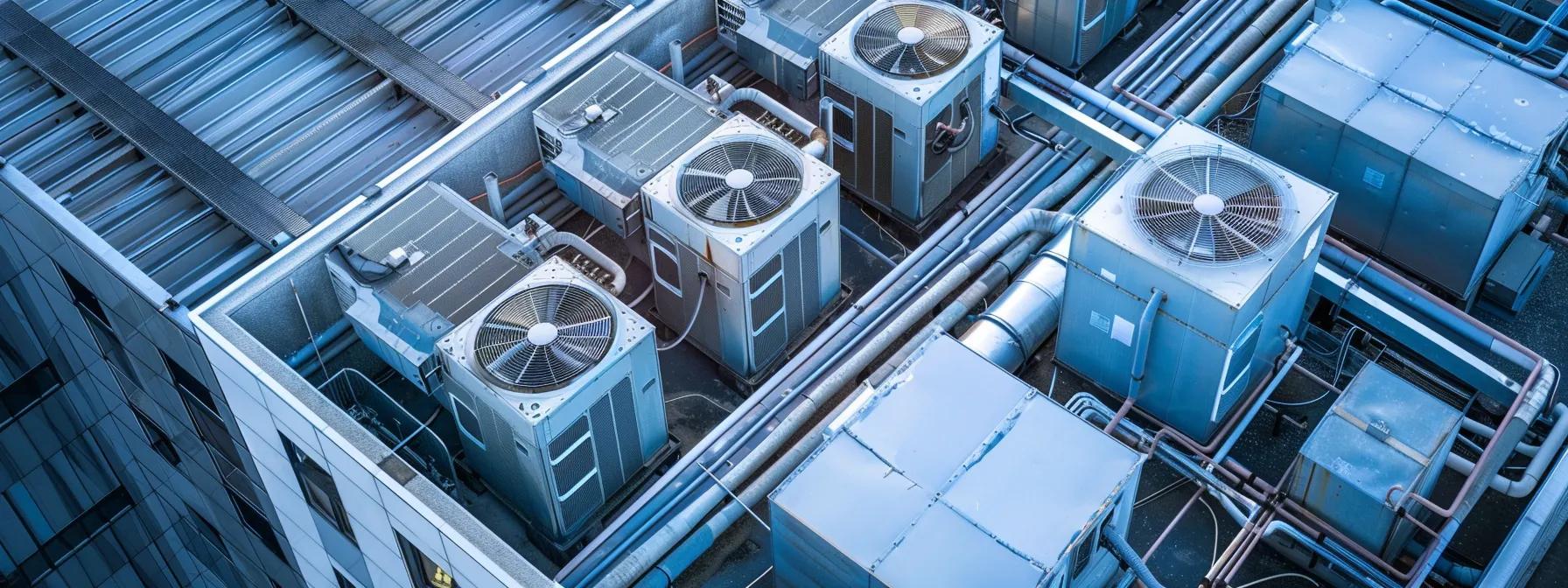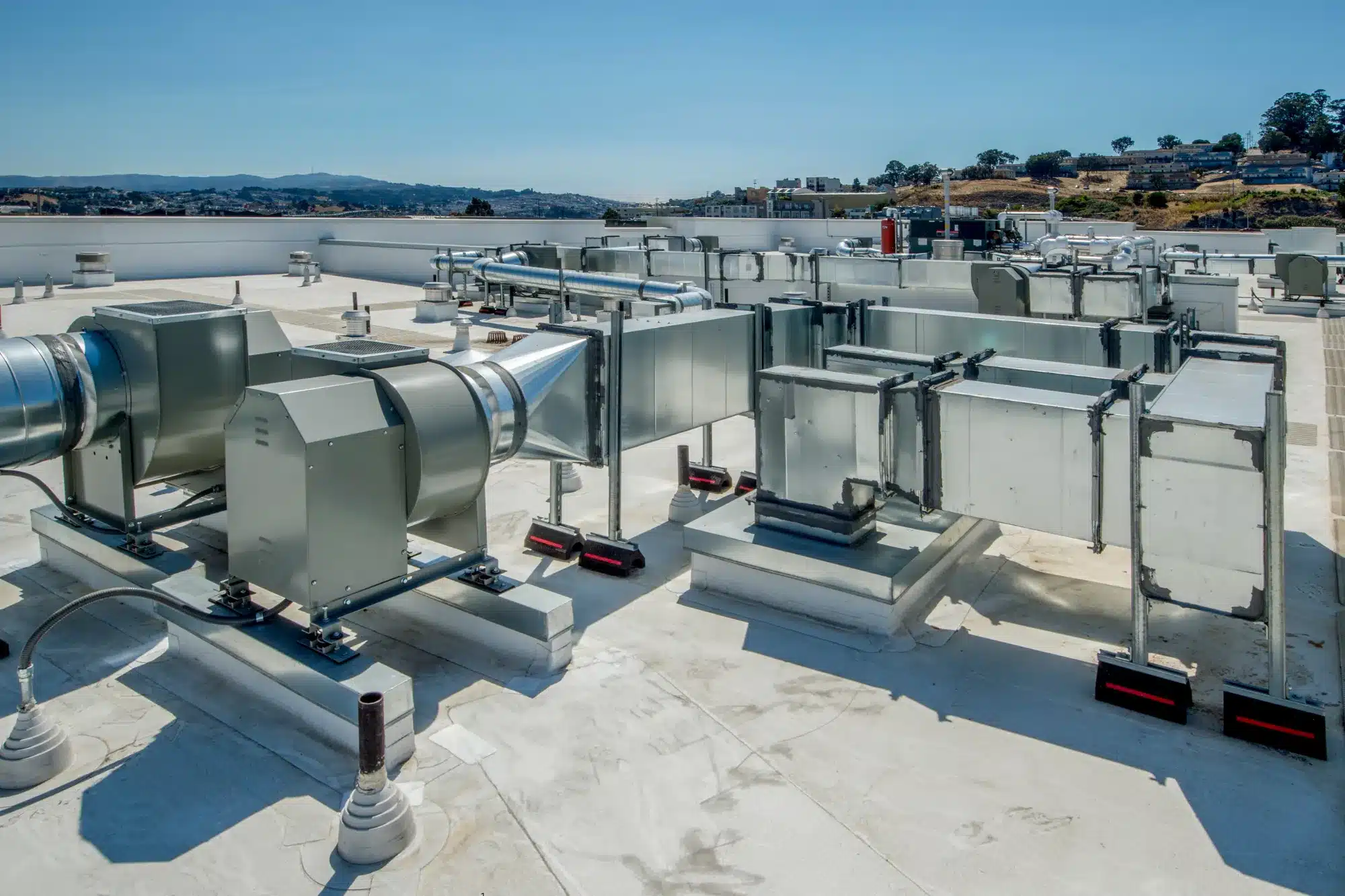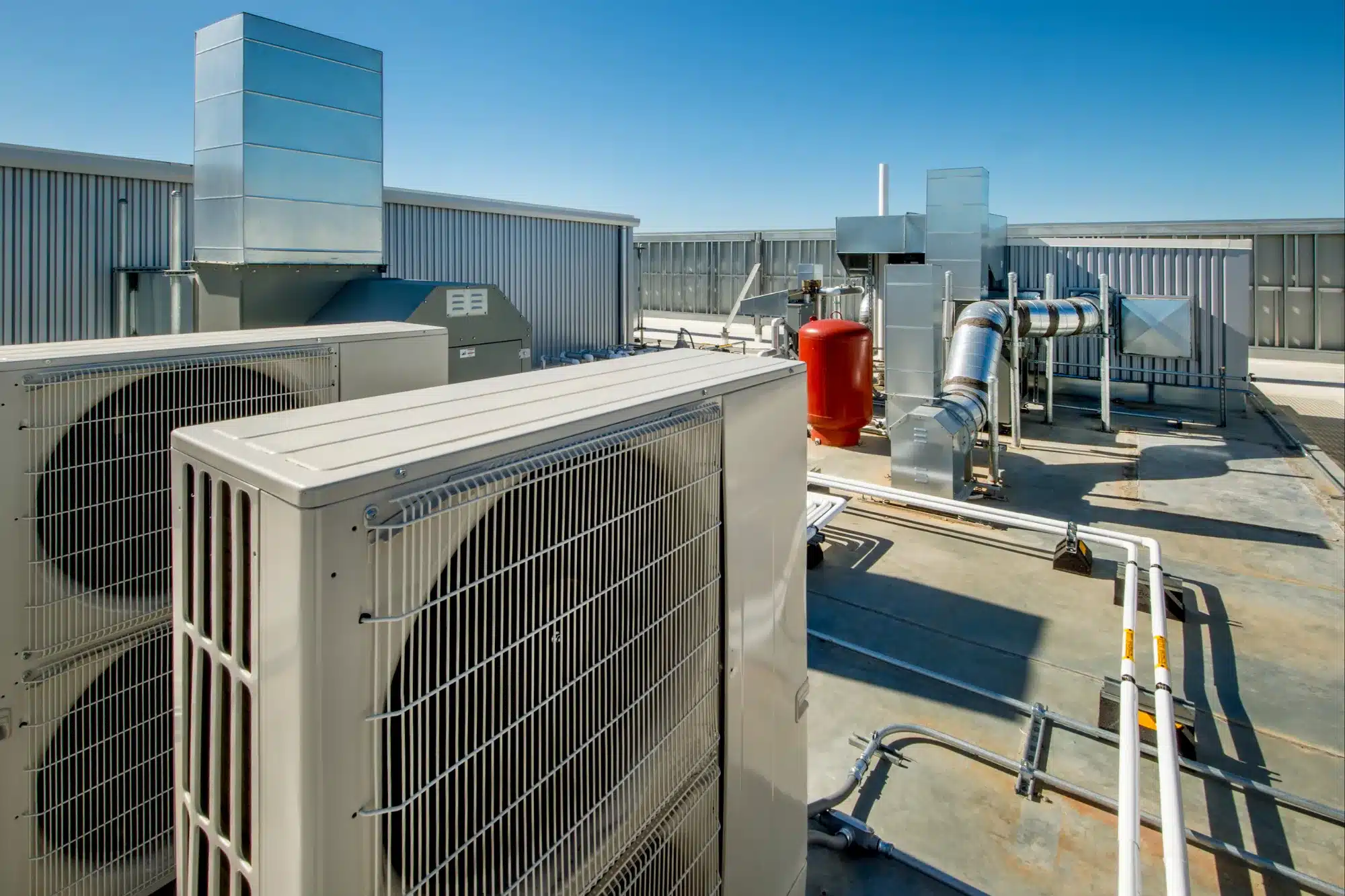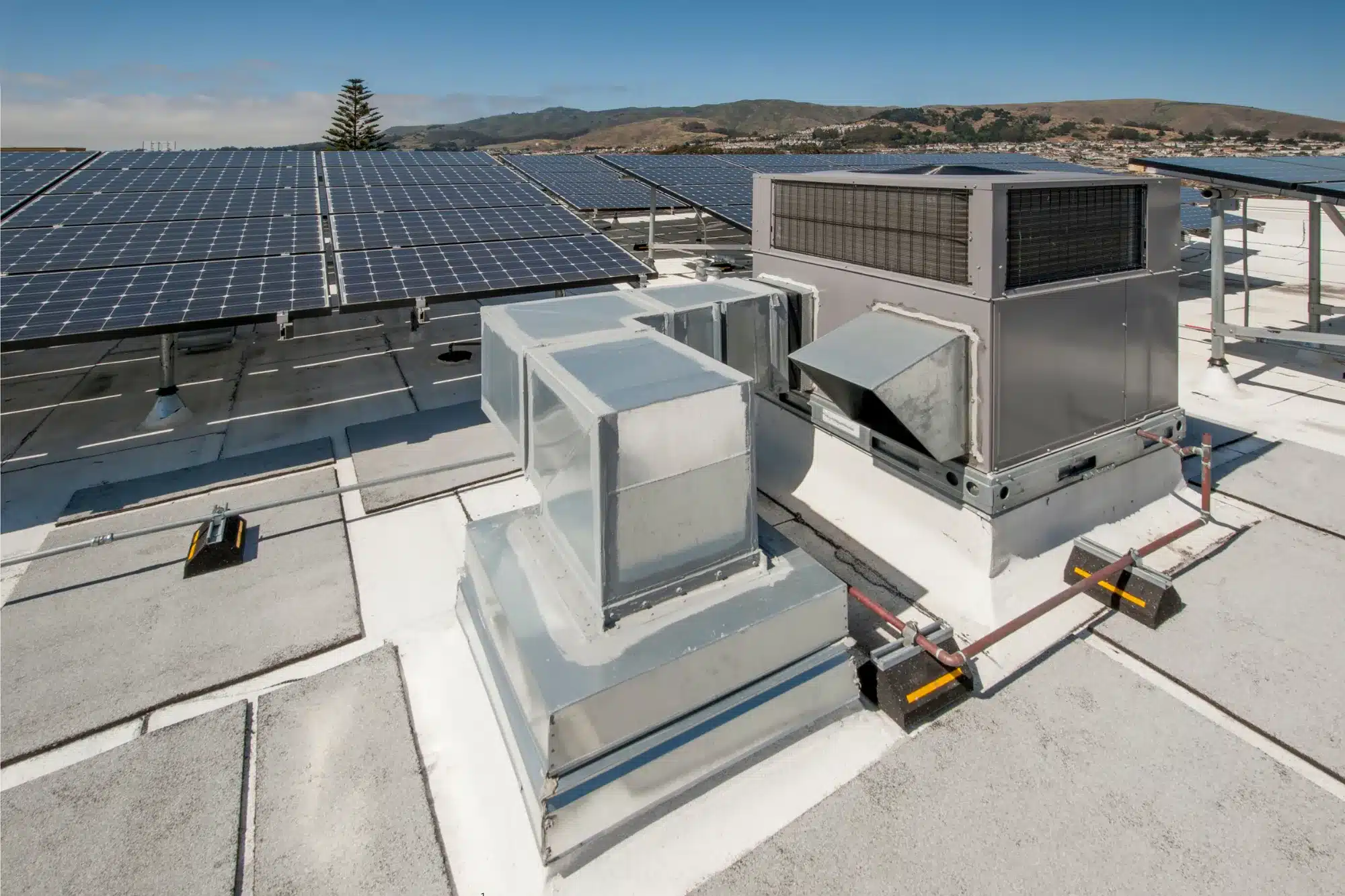
Common HVAC Issues That Cause Frequent Commercial System Failures Explained
commercial hvac systems maintain comfortable indoor environments but can face issues that reduce performance, energy efficiency, and lead to costly repairs. This article outlines common HVAC failures, their causes, impacts, and solutions so facility managers and HVAC professionals can plan effective maintenance schedules and avoid emergency repairs.
What Are the Most Frequent HVAC Problems in Commercial Systems?
Frequent causes of failures in commercial HVAC systems include poor maintenance, refrigerant leaks, electrical failures, airflow restrictions, and thermostat malfunctions. Each issue can compromise system components, from condensers and compressors to air filters and ductwork, affecting cooling performance and energy consumption.
How Does Poor Preventative Maintenance Lead to System Failures?
Lack of regular inspections and servicing causes debris accumulation, corrosion, and worn-out parts. This neglect results in inefficient heat transfer and can transform minor issues like loose electrical connections or small refrigerant leaks into major operational problems. Ultimately, poor maintenance shortens the lifespan of critical components such as compressors and condensers.
Why Are Refrigerant Leaks a Major Cause of Commercial HVAC Breakdowns?
Refrigerant leaks diminish the system’s ability to absorb and dissipate heat, leading to longer run times and higher energy consumption. The reduced refrigerant level strains the compressor, may trigger mechanical failures, and poses environmental risks. Prompt leak detection and timely refrigerant replacement are essential for maintaining cooling performance and regulatory compliance.
How Do Electrical Failures Affect Commercial HVAC Reliability?
Faulty capacitors, worn wiring, and improper voltage disrupt electronic controls, leading to erratic system behavior or shutdowns. Power surges and voltage fluctuations can rapidly damage components like circuit boards and contactors. Regular inspections, proper grounding, and the use of surge protectors help prevent these electrical issues and reduce emergency repairs.
What Role Does Dirty or Clogged Air Filters Play in System Malfunctions?
Clogged air filters restrict airflow, causing the system to work harder. This increased effort raises energy consumption, creates temperature inconsistencies, and reduces indoor air quality. In addition, poor airflow may lead to frozen coils and compressor damage. Routine cleaning and timely replacement of filters are essential to maintain efficiency and proper indoor air quality.
How Does Thermostat Malfunction Cause HVAC System Failures?
An inaccurate thermostat results in inefficient system cycling that may lead to overheating or overcooling. Erratic temperature readings stress components and cause uneven temperature distribution. Upgrading to smart thermostats with better sensors can provide accurate control and reduce strain on the HVAC system.
How Can Preventative Maintenance Reduce Commercial HVAC Failures?

Preventative maintenance is crucial to sustaining HVAC performance. Regular inspections and service help mitigate wear and tear, keep components operating within optimal parameters, and identify minor issues before they become catastrophic failures, thereby protecting energy efficiency and reducing repair costs during peak operation times.
What Are the Key Preventative Maintenance Tasks for Commercial HVAC?
Key tasks include cleaning coils and filters, checking refrigerant levels, and inspecting electrical components. Technicians also calibrate thermostats, inspect ductwork for leaks, and lubricate moving parts. A structured maintenance schedule, whether monthly, quarterly, or annually—not only extends the system’s lifespan but also documents each service for accountability.
How Often Should Commercial HVAC Systems Be Serviced?
Generally, a complete system inspection is recommended twice per year, ideally before the cooling and heating seasons. Facilities operating continuously or in extreme environments may require quarterly checks. Frequent servicing maintains energy efficiency and minimizes unexpected failures that can disrupt operations.
What Are the Benefits of Regular HVAC Inspections?
Routine inspections lead to early detection of issues, increased system lifespan, and reduced emergency repairs. Identifying hidden refrigerant leaks or looming compressor problems through regular checks minimizes downtime and saves on repair costs while keeping energy consumption in check.
How Does Maintenance Help Avoid Emergency Repairs?
Scheduled maintenance keeps components operating efficiently by replacing worn belts, tightening electrical connections, and cleaning internal parts. By maintaining optimal parameters, the HVAC system is less likely to experience sudden breakdowns, reducing both energy waste and emergency repair expenses.
What Are the Signs of Refrigerant Leaks in Commercial HVAC Systems?
Low refrigerant levels manifest as decreased cooling performance, prolonged run times, unusual compressor noises, and higher energy bills. Visual signs like oil traces along tubing indicate a leak that requires immediate attention.
How Do Refrigerant Leaks Affect Cooling Performance?
A drop in refrigerant hinders the HVAC system’s ability to absorb heat, reducing cooling capacity and increasing energy consumption. The added strain on the compressor can trigger expensive mechanical failures if not promptly addressed.
What Are Common Causes of Refrigerant Leaks?
Leaks typically result from physical damage such as corrosion, vibration, or wear and tear. Substandard installation practices or materials can further contribute to leaks. Routine inspections help identify such issues early and extend the system’s life.
How Is a Refrigerant Leak Diagnosed and Repaired?
Technicians use visual inspections and specialized leak-detection equipment, such as electronic detectors or ultraviolet dye, to locate leaks. Once identified, repairs involve sealing the affected area or replacing damaged piping, followed by recharging the system with the correct amount of refrigerant.
What Are the Environmental and Cost Implications of Refrigerant Leaks?
Beyond reducing operational efficiency, refrigerant leaks contribute to ozone depletion and global warming. Economically, they lead to higher energy bills, frequent repairs, and possible regulatory fines. Prompt and proper repair is essential to mitigate these impacts.
Why Are Electrical Issues a Leading Cause of Commercial HVAC Failures?

Reliable electrical systems are vital for HVAC performance. Faulty wiring, degraded capacitors, and poor voltage regulation can disrupt controls, leading to erratic behavior or complete system shutdowns that affect both energy consumption and indoor climate.
What Electrical Components Commonly Fail in Commercial HVAC Systems?
Components such as capacitors, contactors, and circuit boards are prone to failure due to wear and electrical arcing. Regular testing and replacement help ensure these elements continue to support efficient operation, keeping the system reliable.
How Can Electrical Failures Be Prevented?
Routine inspections of wiring, connectors, and control panels, coupled with proper grounding and the use of surge protectors, can reduce the risk of electrical failures. Upgrading outdated panels and adhering to electrical codes further protect the system.
What Are the Risks of Ignoring Electrical Problems?
Unresolved electrical issues can lead to system shutdowns, potential fire hazards, and significant equipment damage. Over time, ignoring these warning signs increases energy consumption and repair costs, making timely interventions essential for system reliability.
How Do Power Surges and Voltage Fluctuations Affect HVAC Systems?
Power surges can irreversibly damage electronic components, while voltage fluctuations cause inconsistent performance and premature wear. Surge protectors and voltage regulators help stabilize the electrical supply and preserve component integrity.
How Do Airflow Problems Cause Commercial HVAC System Failures?
Blocked ducts, dirty filters, or malfunctioning fans can restrict airflow, leading to temperature fluctuations and reduced efficiency. Proper airflow is indispensable to maintain consistent indoor air quality and optimal system performance.
What Happens When Air Filters Are Dirty or Clogged?
Dirty air filters force the system to work harder to circulate air, leading to higher energy consumption and increased mechanical wear. In severe cases, restricted airflow can cause ice formation on the evaporator coils and compressor damage. For more information about
, visit our website.
How Do Blocked or Damaged Ducts Impact HVAC Efficiency?
Damaged ducts or leaks result in uneven distribution of conditioned air, causing temperature inconsistencies and forcing the system to compensate by working harder. This inefficiency raises energy bills and shortens equipment lifespan.
What Are the Signs of Airflow Problems in Commercial HVAC?
Indicators include inconsistent room temperatures, unexpected energy bills, unusual duct noises, and visible debris buildup near vents. Early detection of airflow issues allows for prompt corrective measures, preserving system efficiency.
How Can Airflow Issues Be Resolved Effectively?
Effective solutions include cleaning or replacing filters, sealing duct leaks, and ensuring fans and blowers are working correctly. Professional duct cleaning can remove hidden obstructions, making regular maintenance vital for continuous efficiency.
How Do Thermostat and Control Failures Lead to HVAC System Breakdowns?

Faulty thermostats and control systems disrupt temperature regulation, causing frequent cycling that stresses system components. This results in uneven heating or cooling, increasing energy usage and shortening equipment lifespan.
What Are Common Thermostat Problems in Commercial HVAC?
Common issues include inaccurate readings, poor sensor calibration, and software glitches in smart controls. These problems can cause continual cycling or prolonged system operation, undermining overall efficiency.
How Do Control Failures Affect System Operation?
Constant on-off cycling from control failures stresses compressors and fans, reducing efficiency and leading to higher energy bills. Reliable controls are essential for maintaining stable indoor temperatures and system longevity.
What Are Best Practices for Thermostat Maintenance and Replacement?
Regular calibration, cleaning of sensors, and timely replacement of outdated units are critical. Upgrading to smart thermostats can enhance accuracy and energy control while reducing overall system strain.
How Can Smart Controls Improve Commercial HVAC Reliability?
Smart controls enable adaptive scheduling, remote monitoring, and early alerts for potential issues. These capabilities help maintain optimum performance, reduce energy waste, and prevent system failures before they occur.
What Are the Best Practices to Prevent Frequent Commercial HVAC Failures?
Preventing HVAC failures involves regular system monitoring, thorough inspections, proper installation, and energy efficiency improvements. These best practices ensure that minor issues do not escalate into major failures.
How Does Regular System Monitoring Help Identify Issues Early?
Advanced diagnostic tools provide real-time data on energy consumption, refrigerant levels, and electrical performance. Early identification of anomalies allows technicians to apply corrective measures before problems worsen.
Why Is Professional HVAC Service Essential for Commercial Systems?
Experienced HVAC professionals use specialized equipment to conduct comprehensive inspections and repairs. Their adherence to safety and efficiency standards ensures that the system operates reliably over time.
How Can Energy Efficiency Improvements Reduce System Stress?
Upgrading to high-efficiency motors and adopting smart energy management practices ensure components operate within optimal conditions. Regular energy audits can identify potential improvements that reduce system stress and lower energy consumption.
What Role Does Proper Installation Play in Preventing Failures?
Proper installation is critical to avoid issues such as improper airflow, refrigerant imbalances, and wiring faults. Using qualified contractors and following manufacturer guidelines are key to ensuring a reliable HVAC system.
Table: Key HVAC Failures, Causes, and Preventative Measures
Before exploring FAQs, review the table below summarizing common HVAC failures, their causes, and effective preventative measures.
| HVAC Issue | Common Cause | Preventative Measure | Impact on System |
|---|---|---|---|
| Refrigerant Leaks | Corrosion, improper installation | Regular leak detection and repair | Reduced cooling performance |
| Electrical Failures | Aging capacitors, wiring issues | Routine electrical inspections and upgrades | Erratic system operation |
| Airflow Problems | Dirty filters, blocked ducts | Filter replacement and duct cleaning | Increased energy consumption |
| Thermostat Malfunctions | Calibration issues, sensor failure | Regular calibration and smart thermostat upgrades | Unstable temperature control |
| Poor Preventative Maintenance | Lack of scheduled servicing | Establishing a maintenance schedule | Accelerated component wear |
Regular maintenance and professional inspections are key to keeping commercial HVAC systems reliable and efficient.
Frequently Asked Questions
Q: How can businesses prevent HVAC emergency repairs? A: Regular maintenance, early detection of refrigerant and electrical issues, and timely professional intervention are essential.
Q: What are the most common HVAC maintenance tasks? A: Cleaning filters and coils, checking refrigerant levels, inspecting ductwork and electrical components are the primary tasks.
Q: How often should a commercial HVAC system be serviced? A: Biannual servicing is typical, though high-use or harsh environments may require additional checks.
Q: What environmental risks are associated with refrigerant leaks? A: Leaks can contribute to ozone depletion and global warming, making prompt repairs critical.
Q: How do smart thermostats help improve HVAC reliability? A: They offer accurate temperature control, remote monitoring, and early alerts, reducing system strain and energy usage.
Final Thoughts
Commercial HVAC systems demand diligent care to maintain efficiency and performance. Understanding common issues, from maintenance and refrigerant leaks to electrical and airflow challenges, is vital for preventing failures. Routine inspections, professional service, and smart upgrades greatly enhance system reliability and energy efficiency, ensuring smooth operations and reduced long-term costs.
